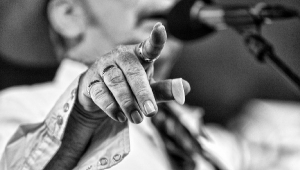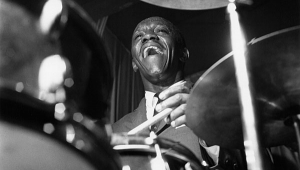| Columns Retired Columns & Blogs |
Submitted to Stereophile via email from LD Pierce:
******
Robert I read with interest your article about Robert Johnson
A long time audiophile I used to also sell on the vinyl/record show circuit in the texas area in the mid 1980s. (to support my record collecting and audiophile habit)
I met an elderly woman from Mississippi at one of the shows and she kept
telling me how she still loved music and she had her moms record store surplus for sale. her mom had a record store in Tunica Ms in the 20s and 30s I guess all the way thru the 60s (more later about that)
A friend of mine Neil Ramos (Austin Tx) and I finally made the trip to Tunica and bought her recollection and filled up 2 cars with vinyl and headed back to Dallas tx. In that batch of records we found TWO robert johnson 78 lp. one was completely worn out. (the womans mother had a rental service she rented 78s to
people in Tunica in the early days (mainly black clientele) she charged five cents per day. the 2nd robert johnson 78 was like brand new and appeared unplayed. A good friend of mine Chuck (at collectors records in Dallas White Rock Lake area) bought all the 78s and helped us sell the 2 Robert johnson 78s seperate. Our record find and the trip to and from Tuinica was even written up in a nice long article in the Dallas Times Herald Newspaper. the article include a lot about our elderly friend who sold the collection and how we were selling our good copy of the robert johnson 78 to the Producer of the movie about Robert Johnson. I cant find my copy I need to search out the newspaper morgue for the Dallas Times Herald. At this time I cant remember what the cuts titles were.
anyway I cant even find a photo Neil and I had taken of ourselves holding the 2 robert Johnson 78 lps. We sold the one clean perfect disc for $5000. I wonder what it would be worth today. I need to track down Niel and Chuck from Collectors and see if we can recall what the title of the songs were. I assume the used the transfer from that 78 lp in the soundtrack of the movie. (that was the plan we heard when we sold it)
I guess her moms record store was open even thru the 60s as we found several autographed Elvis 45 rpm. (my friend Neil kept them)
LD Pierce audiophile age 57
rural Okla formerly Dallas Tx.




































